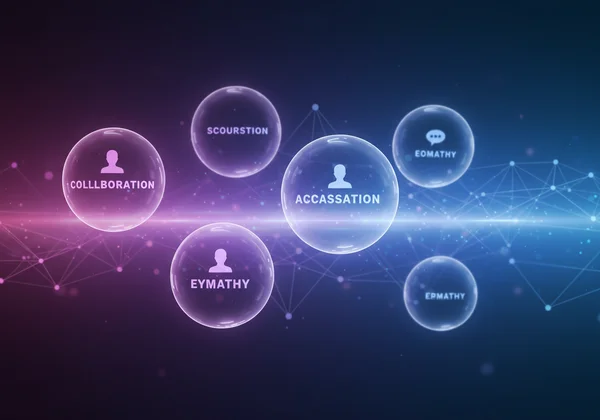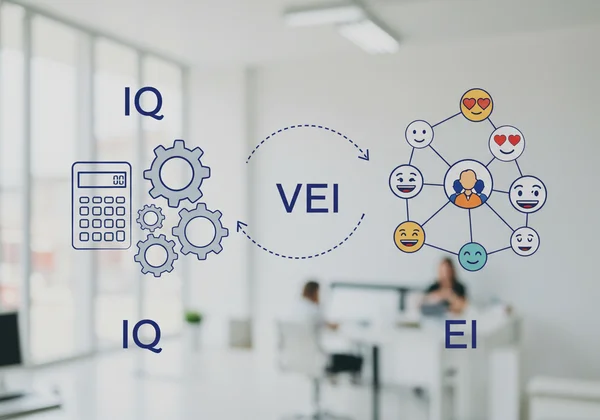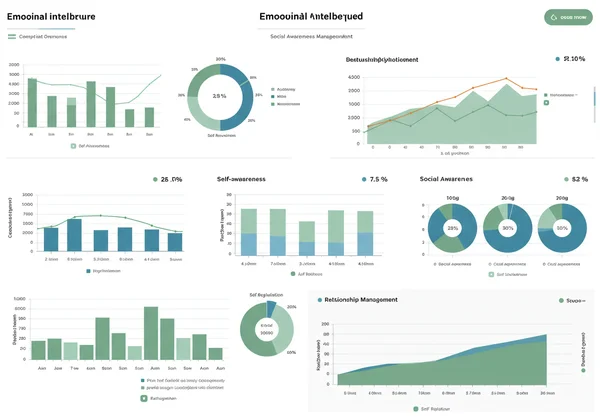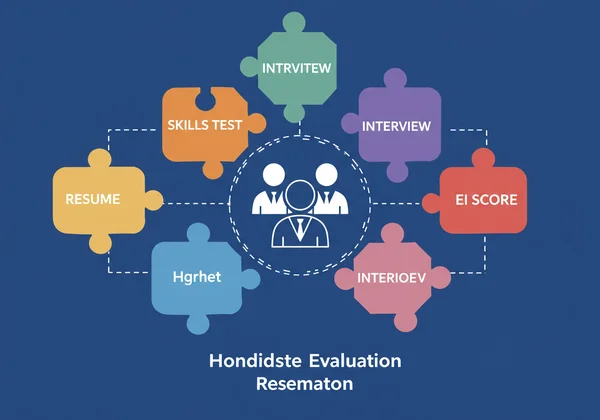EI Tests in Hiring: A Guide for HR & Leaders
October 11, 2025 | By Evelyn Reed
In today's competitive talent landscape, technical skills and qualifications are just the starting point. The real differentiator often lies in a candidate's soft skills—their ability to collaborate, communicate, and navigate complex workplace dynamics. But how do you measure these intangible qualities objectively? This is where an EI test becomes a game-changing tool for modern HR professionals and leaders.
The modern hiring landscape demands a deeper understanding of what truly makes a candidate successful. This guide explores how Emotional Intelligence (EI) tests offer a powerful, objective method for identifying crucial soft skills, enabling HR and leaders to build more resilient and effective workforces. Ready to build a smarter team? Explore an online EI test today.

Why Emotional Intelligence Recruitment Matters Today
Recruiting for emotional intelligence is no longer a "nice-to-have"; it's a strategic imperative. Companies that prioritize EI see tangible improvements in performance, culture, and their bottom line. High EI is directly linked to better decision-making, stronger leadership, and increased resilience in the face of challenges.
Beyond IQ: The Power of EI in the Modern Workforce
For decades, IQ was considered the primary predictor of success. However, research and real-world experience have shown that cognitive intelligence alone is not enough. Emotional intelligence—the ability to perceive, use, understand, and manage emotions—is what enables individuals to apply their technical knowledge effectively. An employee with a high EI can handle pressure, resolve conflicts, and motivate their peers, creating a more productive and harmonious work environment. This is why incorporating an EI assessment tool is becoming standard practice in forward-thinking organizations.
The Business Impact of High-EI Employees & Teams
Hiring individuals with high emotional intelligence has a cascading positive effect throughout an organization. These employees are typically better communicators, more adaptable to change, and more effective leaders. Studies have shown a strong correlation between high EI and key business metrics, including increased sales performance, higher employee engagement, and lower turnover rates. When teams are composed of emotionally intelligent members, collaboration improves, innovation flourishes, and a culture of psychological safety is established, allowing everyone to perform at their best.

Integrating Soft Skills Assessment into Your Hiring Process
Adopting EI tests doesn't mean overhauling your entire recruitment strategy. Instead, it involves strategically inserting them into your existing workflow to gain deeper insights at critical decision points. The key is to use the data to complement, not replace, traditional evaluation methods like interviews and skills tests.
When and How to Administer EI Tests for Recruitment
The timing of an EI test can vary depending on your goals. Some organizations use it early in the process as a pre-screening tool to filter a large applicant pool for roles requiring significant interpersonal skills, such as sales or customer service. Others prefer to use it at a later stage, after technical skills have been verified, to evaluate finalists for leadership potential and cultural fit. Administering the test is simple with our online platform, which allows candidates to complete the assessment remotely, with results delivered directly to your hiring team for efficient analysis.
Interpreting EI Test Results for Informed Hiring Decisions
An EI score is not a simple pass/fail metric. It's a rich dataset that provides a nuanced view of a candidate's emotional competencies, including self-awareness, self-regulation, social awareness, and relationship management. When interpreting results, look for strengths that align with the specific demands of the role. For instance, high self-regulation might be critical for a high-stress position, while strong social awareness is essential for a team leader. Use these insights to formulate targeted interview questions that allow candidates to demonstrate their EI in practical scenarios. An emotional intelligence score can be the key to unlocking a candidate's true potential.

Best Practices for Ethical & Effective EI Test Use
To maximize the benefits of EI testing and maintain a positive candidate experience, it's crucial to implement it ethically and responsibly. This builds trust with applicants and ensures the data you collect is used to make fair, objective, and effective hiring decisions.
Ensuring Fairness and Mitigating Bias in EI Testing
One of the primary advantages of a scientifically validated EI test is its objectivity. Unlike subjective interview impressions, a well-designed assessment provides standardized data that reduces the impact of unconscious bias. To ensure fairness, use tests that are based on established psychological frameworks and have been validated across diverse populations. Always communicate clearly to candidates why the test is being used and how it fits into the overall evaluation process. Transparency is key to building a trustworthy and equitable hiring system.
Combining EI Scores with Other Candidate Evaluations
Emotional intelligence is a critical piece of the puzzle, but it's not the entire picture. The most effective hiring strategies use EI test results as part of a holistic evaluation. Combine these insights with information from resumes, skills assessments, structured interviews, and reference checks. This comprehensive approach ensures you are evaluating a candidate's full range of abilities—technical, cognitive, and emotional. This balanced perspective helps you identify well-rounded individuals who will not only excel in their roles but also contribute positively to your company culture. Get a baseline by taking a free EI test.

Empowering Your Workforce with Strategic EI Hiring
Integrating EI tests into your hiring process is a strategic move that pays long-term dividends. By prioritizing emotional intelligence, you are not just filling positions; you are building a more engaged, collaborative, and resilient workforce capable of navigating the complexities of the modern business world. This approach helps you identify future leaders, reduce costly turnover, and foster a culture where employees feel valued and understood.
Ready to elevate your talent acquisition strategy? Start by understanding the power of emotional intelligence. Explore EI tests to see how our scientifically-backed assessments can help you identify and hire the top-tier talent your organization deserves.
Common Questions About EI Tests for HR & Leaders
What are the benefits of an EI test for leaders or hiring managers?
For leaders and hiring managers, an EI test provides objective data on a candidate's soft skills, which are traditionally difficult to measure. This helps predict job performance, team fit, and leadership potential more accurately, reducing hiring mistakes and improving employee retention.
How does emotional intelligence differ from IQ in recruitment?
IQ (Intelligence Quotient) measures cognitive abilities like logic and reasoning, indicating if a person can do the job. EQ (Emotional Quotient) or EI measures emotional competencies, indicating how they will do the job—how they will interact with colleagues, handle stress, and lead others. Both are important, but EI is often a better predictor of long-term success and leadership effectiveness.
What defines a good EI score in a professional context?
There isn't a universal "good" score; it's role-dependent. A high score in empathy might be crucial for a therapist, while a high score in self-regulation is vital for a project manager. Instead of focusing on a single number, look at the profile of scores across different EI competencies and see how they align with the specific requirements of the job. You can discover your results to better understand this balance.
Can emotional intelligence be improved, and how does that affect talent development?
Absolutely. Unlike IQ, which is relatively stable, emotional intelligence is a flexible set of skills that can be learned and developed over time. This is great news for talent development. By using an EI test to identify areas for growth, you can create targeted training and coaching programs to enhance the leadership and performance capabilities of your existing employees.